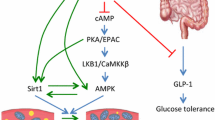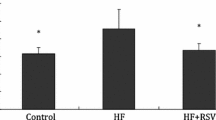Abstract
The prevalence of obesity has increased rapidly during recent years and has reached epidemic proportions. As a result, the scientific community is interested in active biomolecules which are naturally present in plants and foodstuffs and may be useful in body weight management. In recent years, polyphenols have made up one of the most frequently studied groups among these molecules. Numerous studies have been carried out on animals to analyse the potential anti-obesity effects of resveratrol, a non-flavonoid polyphenol, and a general consensus concerning the body-fat-lowering effect of this compound exists. By contrast, studies in humans have been few so far. Moreover, in these studies, the effectiveness of resveratrol is low. The aims of the present review are to summarize the results reported so far on this topic and to justify the differences observed between animals and humans. It seems that the reduced response to resveratrol in humans cannot be attributed to the use of lower doses in humans because the doses that induce body-fat-lowering effects in rodents are in the same range as those used in human studies. With regard to the experimental period length, treatments were longer in animal studies than in human studies. This can be one of the reasons contributing to the reduced responses observed in humans. Moreover, animals used in the reported studies are young while volunteers participating in human studies are adults, suggesting that resveratrol may be more efficient in young individuals. In addition to differences in the experimental designs, metabolic differences between animals and human cannot be discarded.

Similar content being viewed by others
Change history
05 October 2017
Volume 73 issue 3 was published with an incorrect cover date. Correct is August 2017. The Publisher apologizes for this mistake and all related inconveniences caused by this.
References
Aguirre L, Fernández-Quintela A, Arias N, Portillo MP (2014) Resveratrol: anti-obesity mechanisms of action. Molecules 19:18632–18655
Alberdi G, Macarulla MT, Portillo MP, Rodríguez VM (2014) Resveratrol does not increase body fat loss induced by energy restriction. J Physiol Biochem 70:639–646
Alberdi G, Rodríguez VM, Miranda J, Macarulla MT, Arias N, Andrés-Lacueva C, Portillo MP (2011) Changes in white adipose tissue metabolism induced by resveratrol in rats. Nutr Metab (Lond) 8:29
Alberdi G, Rodríguez VM, Miranda J, Macarulla MT, Churruca I, Portillo MP (2013) Thermogenesis is involved in the body-fat lowering effects of resveratrol in rats. Food Chem 141:1530–1535
Andrade JM, Paraíso AF, de Oliveira MV, Martins AM, Neto JF, Guimarães AL, de Paula AM, Qureshi M, Santos SH (2014) Resveratrol attenuates hepatic steatosis in high-fat fed mice by decreasing lipogenesis and inflammation. Nutrition 30:915–919
Arias N, Macarulla MT, Aguirre L, Milton I, Portillo MP (2016) The combination of resveratrol and quercetin enhances the individual effects of these molecules on triacylglycerol metabolism in white adipose tissue. Eur J Nutr 55:341–348
Baur JA, Pearson KJ, Price NL, Jamieson HA, Lerin C, Kalra A, Prabhu VV, Allard JS, Lopez-Lluch G, Lewis K, Pistell PJ, Poosala S, Becker KG, Boss O, Gwinn D, Wang M, Ramaswamy S, Fishbein KW, Spencer RG, Lakatta EG, Le Couteur D, Shaw RJ, Navas P, Puigserver P, Ingram DK, de Cabo R, Sinclair DA (2006) Resveratrol improves health and survival of mice on a high-calorie diet. Nature 444:337–342
Borriello A, Cucciolla V, Della Ragione F, Galletti P (2010) Dietary polyphenols: focus on resveratrol, a promising agent in the prevention of cardiovascular diseases and control of glucose homeostasis. Nutr Metab Cardiovasc Dis 20:618–625
Burkon A, Somoza V (2008) Quantification of free and protein-bound trans-resveratrol metabolites and identification of trans-resveratrol-C/O-conjugated diglucuronides—two novel resveratrol metabolites in human plasma. Mol Nutr Food Res 52:549–557
Burns J, Yokota T, Ashihara H, Lean ME, Crozier A (2002) Plant foods and herbal sources of resveratrol. J Agric Food Chem 50:3337–3340
Chachay VS, Macdonald GA, Martin JH, Whitehead JP, O’Moore-Sullivan TM, Lee P, Franklin M, Klein K, Taylor PJ, Ferguson M, Coombes JS, Thomas GP, Cowin GJ, Kirkpatrick CM, Prins JB, Hickman IJ (2014) Resveratrol does not benefit patients with nonalcoholic fatty liver disease. Clin Gastroenterol Hepatol 12:2092–2103.e2096
Chang CC, Lin KY, Peng KY, Day YJ, Hung LM (2016) Resveratrol exerts anti-obesity effects in high-fat diet obese mice and displays differential dosage effects on cytotoxicity, differentiation, and lipolysis in 3T3-L1 cells. Endocr J 63:169–178
Cho SJ, Jung UJ, Choi MS (2012) Differential effects of low-dose resveratrol on adiposity and hepatic steatosis in diet-induced obese mice. Br J Nutr 108:2166–2175
Crandall JP, Oram V, Trandafirescu G, Reid M, Kishore P, Hawkins M, Cohen HW, Barzilai N (2012) Pilot study of resveratrol in older adults with impaired glucose tolerance. J Gerontol A Biol Sci Med Sci 67:1307–1312
Dal-Pan A, Blanc S, Aujard F (2010) Resveratrol suppresses body mass gain in a seasonal non-human primate model of obesity. BMC Physiol 10:11
Gu H, Li K, Li X, Yu X, Wang W, Ding L, Liu L (2016) Oral resveratrol prevents osteoarthritis progression in C57BL/6J mice fed a high-fat diet. Nutrients 8:233
Gómez-Zorita S, Fernández-Quintela A, Lasa A, Hijona E, Bujanda L, Portillo MP (2013) Effects of resveratrol on obesity-related inflammation markers in adipose tissue of genetically obese rats. Nutrition 29:1374–1380
James PT, Rigby N, Leach R, Force IOT (2004) The obesity epidemic, metabolic syndrome and future prevention strategies. Eur J Cardiovasc Prev Rehabil 11:3–8
Jeon SM, Lee SA, Choi MS (2014) Antiobesity and vasoprotective effects of resveratrol in apoE-deficient mice. J Med Food 17:310–316
Kim KH, Park Y (2011) Food components with anti-obesity effect. Annu Rev Food Sci Technol 2:237–257
Kim S, Jin Y, Choi Y, Park T (2011) Resveratrol exerts anti-obesity effects via mechanisms involving down-regulation of adipogenic and inflammatory processes in mice. Biochem Pharmacol 81:1343–1351
Konings E, Timmers S, Boekschoten MV, Goossens GH, Jocken JW, Afman LA, Müller M, Schrauwen P, Mariman EC, Blaak EE (2014) The effects of 30 days resveratrol supplementation on adipose tissue morphology and gene expression patterns in obese men. Int J Obes 38:470–473
Lagouge M, Argmann C, Gerhart-Hines Z, Meziane H, Lerin C, Daussin F, Messadeq N, Milne J, Lambert P, Elliott P, Geny B, Laakso M, Puigserver P, Auwerx J (2006) Resveratrol improves mitochondrial function and protects against metabolic disease by activating SIRT1 and PGC-1alpha. Cell 127:1109–1122
Le Martelot G, Claudel T, Gatfield D, Schaad O, Kornmann B, Sasso GL, Moschetta A, Schibler U (2009) REV-ERBalpha participates in circadian SREBP signaling and bile acid homeostasis. PLoS Biol 7:e1000181
Leiherer A, Mündlein A, Drexel H (2013) Phytochemicals and their impact on adipose tissue inflammation and diabetes. Vasc Pharmacol 58:3–20
Macarulla MT, Alberdi G, Gómez S, Tueros I, Bald C, Rodríguez VM, Martínez JA, Portillo MP (2009) Effects of different doses of resveratrol on body fat and serum parameters in rats fed a hypercaloric diet. J Physiol Biochem 65:369–376
Mendes KL, de Pinho L, Andrade JM, Paraíso AF, Lula JF, Macedo SM, Feltenberger JD, Guimarães AL, de Paula AM, Santos SH (2016) Distinct metabolic effects of resveratrol on lipogenesis markers in mice adipose tissue treated with high-polyunsaturated fat and high-protein diets. Life Sci 153:66–73
Miranda J, Portillo MP, Madrid JA, Arias N, Macarulla MT, Garaulet M (2013) Effects of resveratrol on changes induced by high-fat feeding on clock genes in rats. Br J Nutr 110:1421–1428
Méndez-del Villar M, González-Ortiz M, Martínez-Abundis E, Pérez-Rubio KG, Lizárraga-Valdez R (2014) Effect of resveratrol administration on metabolic syndrome, insulin sensitivity, and insulin secretion. Metab Syndr Relat Disord 12:497–501
Nagao K, Jinnouchi T, Kai S, Yanagita T (2013) Effect of dietary resveratrol on the metabolic profile of nutrients in obese OLETF rats. Lipids Health Dis 12:8
Ohara K, Kusano K, Kitao S, Yanai T, Takata R, Kanauchi O (2015) ε-Viniferin, a resveratrol dimer, prevents diet-induced obesity in mice. Biochem Biophys Res Commun 468:877–882
Poulsen MM, Vestergaard PF, Clasen BF, Radko Y, Christensen LP, Stødkilde-Jørgensen H, Møller N, Jessen N, Pedersen SB, Jørgensen JO (2013) High-dose resveratrol supplementation in obese men: an investigator-initiated, randomized, placebo-controlled clinical trial of substrate metabolism, insulin sensitivity, and body composition. Diabetes 62:1186–1195
Qiao Y, Sun J, Xia S, Tang X, Shi Y, Le G (2014) Effects of resveratrol on gut microbiota and fat storage in a mouse model with high-fat-induced obesity. Food Funct 5:1241–1249
Reagan-Shaw S, Nihal M, Ahmad N (2008) Dose translation from animal to human studies revisited. FASEB J 22:659–661
Rivera L, Morón R, Zarzuelo A, Galisteo M (2009) Long-term resveratrol administration reduces metabolic disturbances and lowers blood pressure in obese Zucker rats. Biochem Pharmacol 77:1053–1063
Szkudelska K, Nogowski L, Szkudelski T (2009) Resveratrol, a naturally occurring diphenolic compound, affects lipogenesis, lipolysis and the antilipolytic action of insulin in isolated rat adipocytes. J Steroid Biochem Mol Biol 113:17–24
Szkudelska K, Szkudelski T (2010) Resveratrol, obesity and diabetes. Eur J Pharmacol 635:1–8
Tauriainen E, Luostarinen M, Martonen E, Finckenberg P, Kovalainen M, Huotari A, Herzig KH, Lecklin A, Mervaala E (2011) Distinct effects of calorie restriction and resveratrol on diet-induced obesity and fatty liver formation. J Nutr Metab 2011:525094
Timmers S, Konings E, Bilet L, Houtkooper RH, van de Weijer T, Goossens GH, Hoeks J, van der Krieken S, Ryu D, Kersten S, Moonen-Kornips E, Hesselink MK, Kunz I, Schrauwen-Hinderling VB, Blaak EE, Auwerx J, Schrauwen P (2011) Calorie restriction-like effects of 30 days of resveratrol supplementation on energy metabolism and metabolic profile in obese humans. Cell Metab 14:612–622
Voigt A, Ribot J, Sabater AG, Palou A, Bonet ML, Klaus S (2015) Identification of Mest/Peg1 gene expression as a predictive biomarker of adipose tissue expansion sensitive to dietary anti-obesity interventions. Genes Nutr 10
WHO (2014) Obesity and overweight. In, http://www.who.int/mediacentre/factsheets/fs311/en/
Yoshino J, Conte C, Fontana L, Mittendorfer B, Imai S, Schechtman KB, Gu C, Kunz I, Rossi Fanelli F, Patterson BW, Klein S (2012) Resveratrol supplementation does not improve metabolic function in nonobese women with normal glucose tolerance. Cell Metab 16:658–664
Acknowledgements
This research has been supported by MINECO (AGL-2015-65719-R), Fondo Europeo de Desarrollo Regional (FEDER), University of the Basque Country (ELDUNANOTEK UFI11/32), Instituto de Salud Carlos III (CIBERobn) and Basque Government (IT-572-13).
Author information
Authors and Affiliations
Corresponding author
Additional information
An erratum to this article is available at https://doi.org/10.1007/s13105-017-0593-x.
Rights and permissions
About this article
Cite this article
Fernández-Quintela, A., Carpéné, C., Fernández, M. et al. Anti-obesity effects of resveratrol: comparison between animal models and humans. J Physiol Biochem 73, 417–429 (2016). https://doi.org/10.1007/s13105-016-0544-y
Received:
Accepted:
Published:
Issue Date:
DOI: https://doi.org/10.1007/s13105-016-0544-y




